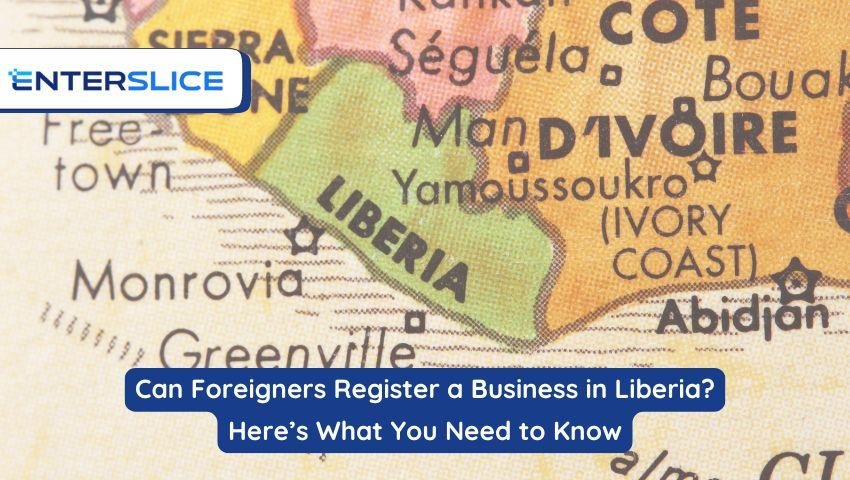Can Foreigners Register a Business in Liberia? Here’s What You Need to Know

Liberia, located on the west coast of Africa, is rich in natural resources, home to a young and energetic population, and open to international trade and investment. With pro-business reforms, tax incentives, and minimal restrictions on foreign ownership, the country is gradually attracting global entrepreneurs and investors looking to tap into emerging markets.
But if you’re a non-citizen with plans to launch a company in Liberia, you’re likely wondering: Can foreigners register a business in Liberia? The answer is yes — and the process is quite welcoming compared to other African nations.
This article breaks down everything you need to know about business registration for foreigners in Liberia, including legal frameworks, procedures, and practical tips for success.
1. Legal Framework for Foreign Business Ownership in Liberia
Liberia has taken substantial steps to liberalize its economy and make it more appealing to foreign direct investment (FDI). The two main laws governing business activity in the country are:
-
The Liberia Business Corporation Act
-
The Investment Act of 2010
Under these laws, foreigners can:
-
Own up to 100% of a business
-
Register corporations, partnerships, or sole proprietorships
-
Repatriate profits without significant restrictions
-
Access incentives through Liberia’s National Investment Commission (NIC)
However, some areas are either reserved for Liberians or require joint ventures. Sectors such as petty trade, small-scale transportation, and certain services are restricted to Liberian citizens. Therefore, it’s crucial to review the NIC’s negative list before selecting your business activity.
2. What Types of Businesses Can Foreigners Register?
Foreigners can register most types of businesses in Liberia, including:
-
Limited Liability Companies (LLCs) – The most common form for startups and SMEs
-
Corporations – Suitable for larger businesses with shareholders
-
Branches of Foreign Companies – Allows global companies to operate locally
-
Joint Ventures – Often used for sectors that require Liberian participation
Each structure comes with its own reporting requirements and tax obligations. An LLC, for example, offers liability protection and is relatively easy to maintain. For complex projects, a corporation might be more appropriate.
3. Step-by-Step: How to Register a Business in Liberia as a Foreigner
Step 1: Decide on Your Business Type
Determine whether you’ll operate as an LLC, corporation, or branch. This will impact your tax filing, liability, and operational model.
Step 2: Reserve a Business Name
Visit the Liberia Business Registry (LBR) or use their online portal to check name availability. Once approved, the name will be reserved for your use.
Step 3: Prepare the Required Documentation
Standard documents include:
-
Articles of Incorporation or Memorandum of Association
-
Copies of passports for foreign directors and shareholders
-
Proof of address (both local and foreign)
-
Notarized declaration of compliance
-
Application forms from the LBR
Step 4: Register with the Liberia Business Registry
Submit your full application to the LBR. This can be done in person or through a licensed business consultant or lawyer. Processing times range from 3 to 7 business days.
Step 5: Obtain a Tax Identification Number (TIN)
Apply for a TIN from the Liberia Revenue Authority (LRA). This is necessary for paying corporate taxes, withholding taxes, and VAT (if applicable).
Step 6: Apply for Sector-Specific Licenses
Depending on your industry (e.g., mining, banking, hospitality), you may need approvals from other government agencies such as:
-
The Ministry of Commerce and Industry
-
The Environmental Protection Agency (EPA)
-
The Liberia Petroleum Regulatory Authority
Step 7: Open a Business Bank Account
Most foreign-owned businesses must have a local bank account for tax reporting and operational use. Major banks in Liberia include Ecobank, GT Bank, and UBA.
4. Foreign Investment Incentives in Liberia
To attract foreign capital, Liberia offers generous investment incentives, especially in priority sectors such as agriculture, tourism, renewable energy, and infrastructure. Benefits include:
-
Up to 5 years of tax holidays
-
Duty-free importation of capital equipment
-
Protection against expropriation
-
Repatriation of profits and dividends
To access these incentives, businesses must register with the National Investment Commission (NIC) and meet certain minimum investment thresholds, which vary by sector.
5. Key Considerations for Foreign Entrepreneurs
A. Local Partnerships
Although 100% foreign ownership is allowed in many sectors, partnering with a local can be beneficial for navigating bureaucracy and understanding cultural nuances.
B. Employment Laws
Liberian labor laws encourage the hiring of local talent. Foreign businesses may need to justify the hiring of expatriates and contribute to skills transfer initiatives.
C. Land Ownership
Foreigners cannot directly own land in Liberia but can lease land for up to 50 years, with an option to renew.
D. Legal & Financial Advisors
Hiring a local lawyer or business consultant is strongly recommended to ensure compliance and to expedite the registration process. A financial advisor can also help you understand tax rates and banking regulations.
6. Common Challenges and How to Overcome Them
Some foreign investors face challenges such as:
-
Delays in paperwork processing
-
Lack of transparency in certain sectors
-
Infrastructure gaps (electricity, internet)
The best way to mitigate these risks is to:
-
Conduct thorough due diligence
-
Work with established local partners
-
Use legal representation to handle official processes
Conclusion: A Land of Opportunity for Foreign Business Owners
Liberia is open for business — and that includes foreign investors. With the right planning and local support, launching a business in Liberia is not only possible but can also be highly rewarding. From agriculture to services and manufacturing, Liberia offers unique opportunities for growth, impact, and profit.
Just make sure to understand the local laws, register properly, and stay compliant with tax and employment regulations. With these steps, you’ll be well-positioned to make the most of what Liberia has to offer.




